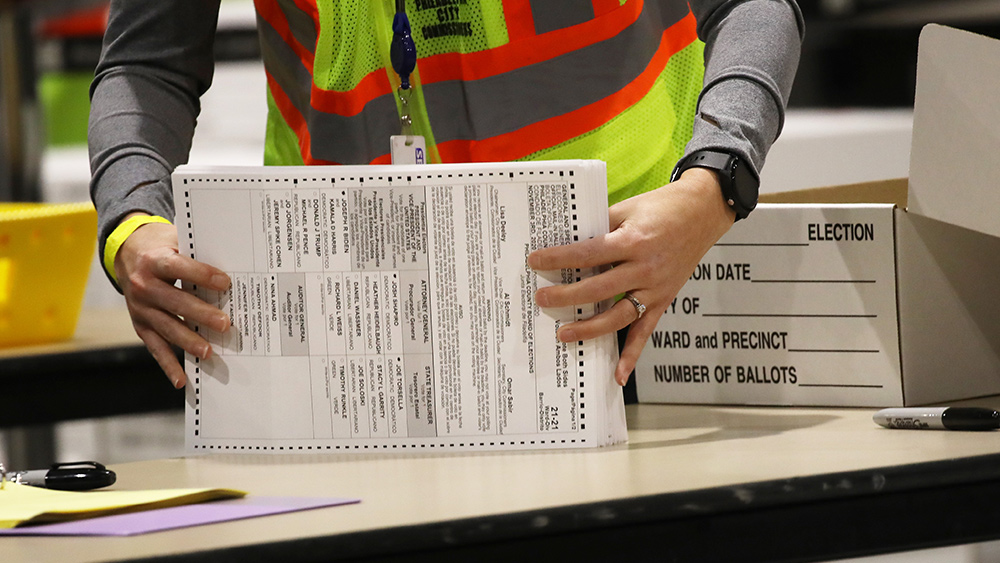 Parler
Parler Gab
Gab
22 Nations formally applying to become full BRICS members
South Africa's ambassador to the BRICS bloc, Anil Sooklal, recently informed journalists that 22 nations have formally applied to join the organization. This announcement comes just days before BRICS is about to hold a summit in South Africa's main commercial city of Johannesburg, due to take place on Aug. 22 to 24 and without the attendance of Russian President Vladimir Putin. "Twenty-two countries have formally approached BRICS countries to become full members. There's an equal number of countries that have been informally asking about becoming BRICS members … [including] all the major global south countries," said Sooklal. Some of the countries that have publicly expressed their interest to become full-fledged members of the economic union are Argentina, Bangladesh, Comoros, Cuba, the Democratic Republic of the Congo, Gabon, Iran, Kazakhstan, Saudi Arabia and the United Arab Emirates. The growing interest in membership to the BRICS group is "nothing new," said Sooklal, but it does underline the "confidence" that the world has in the work that BRICS nations have done in "championing" the economies of the developing world since the group's inception. "The BRICS are not only the driving force of global strength in trying to change the fault lines in terms of global politics, they are also changing what happens in the global economic space," said Sooklal. "The current global architecture continues to be unequal, continues to marginalize developing countries … and continues to be dominated by a few hegemonies. We want a world where our voices are heard." Sooklal noted that BRICS is now being seen more as "a powerful force," adding that, measured by purchasing power parity, the bloc now accounts for nearly 32 percent of the global GDP – a level that officially overtakes the G7 group of so-called advanced democracies that includes the United States. Mikatekiso Kubayi, a researcher for the Institute for Global Dialogue at the University of South Africa in Pretoria, noted that BRICS's many achievements make joining the bloc a very attractive prospect. "You will recall that from the onset BRICS was an outfit that was easily dismissed by many, particularly in the West, seen merely as some concept," said Kubayi. "But it has achieved a lot, you know, in the 15 years that it's been around." Kubayi's examples include the creation of the New Development Bank and its programs and policies for looking at alternative ways of conducting trade and promoting the use of local currencies. Learn more about the coming end of the U.S. dollar at DollarDemise.com. Watch this clip from Kitco News as financial expert Andy Schectman discusses the possibility that 85 percent of the global population could dump the U.S. dollar. This video is from the Thrive Time Show channel on Brighteon.com.More related stories:
Robert Kiyosaki warns of impending DOLLAR DEMISE amid BRICS group's gold-backed crypto plan. Putin to skip BRICS Summit in South Africa, eluding potential ICC arrest. USD dominance will substantially weaken with BRICS launch of a gold-backed cryptocurrency. Macron asks for invite to August BRICS summit in South Africa – but adding France could create FRICTION within the group. Sources include: Brighteon.com Reuters.com VOANews.com AfricaNews.comSarah Palin warns of SECOND CIVIL WAR if political persecution of Donald Trump continues
By Arsenio Toledo // Share
Why was a barricade blocking the only paved road out of Lahaina?
By News Editors // Share
The coming collapse of the global Ponzi scheme
By News Editors // Share
Judge blocks university ban on church elder who called out transgender student for joining sorority
By Belle Carter // Share
Governments continue to obscure COVID-19 vaccine data amid rising concerns over excess deaths
By patricklewis // Share
Tech giant Microsoft backs EXTINCTION with its support of carbon capture programs
By ramontomeydw // Share
Germany to resume arms exports to Israel despite repeated ceasefire violations
By isabelle // Share










